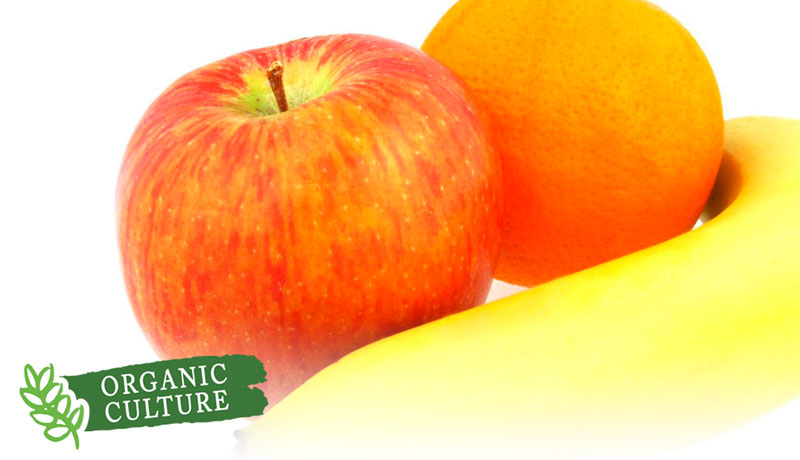Fruits are delicious and nourishing, but they aren’t all created equal. Some fruits have a lot more sugar than others, so you have to be careful with those. Make sure you’re getting the most for your money by choosing the healthiest fruits on this list!
The health benefits of fruits are numerous, but the most important for seniors is their ability to help improve digestion and reduce the risk of constipation. In addition, fruits are a great source of fiber, which helps maintain regularity and prevent hemorrhoids.
Fruits are packed with vitamins and minerals, but they also contain antioxidants that can help fight off free radicals that cause aging.
Plus, if you’re feeling a little under the weather, many fruits are known to have medicinal qualities. For example, the sweet-smelling elderflower is often used as a natural remedy for colds and sore throats.
Fruits also contain antioxidants that can fight cancer and heart disease. The pigment in fruits called anthocyanin can help reduce blood pressure and lower cholesterol levels by preventing plaque formation in arteries.
Apples
Apples are a juicy fruit that can be eaten as-is or juiced. They’re also available in a variety of colors and flavors, including red, green (or Granny Smith), and pink (the latter has a slightly sweeter taste).
Apples are a good source of vitamin C—in fact, one medium apple contains about 20 percent of your daily vitamin C needs. They are also rich in pectin, which helps to lower cholesterol levels by removing excess bile acids from the body. Apples also contain phytonutrients called polyphenols that have anti-inflammatory properties
Apricots
Apricots are a good source of vitamin A, which is an antioxidant that helps keep your skin healthy and glowing. They’re also low in calories and high in fiber, making them a great choice if you’re trying to lose weight or maintain a healthy weight. And since apricots contain antioxidants like beta-carotene (which converts into vitamin A), they can help prevent the signs of aging. Apricots are also high in vitamin C, which may protect against cancer by keeping cells healthy and fighting free radicals (unstable molecules that damage cells).
Avocados
Avocados are very healthy. They contain a lot of potassium, which is good for your heart. Avocados are also high in fiber and fat, but it’s the good kind of fat that we need to stay healthy.
Bananas
Bananas are packed with potassium and fiber, making them a great snack for muscle recovery. Bananas also contain vitamin B6, which helps with the metabolism of protein and carbohydrates. This makes bananas an excellent choice for athletes looking to gain or maintain muscle mass while keeping their calorie intake low.
Bananas are also great for digestion because they contain pectin, a soluble fiber that aids in healthy digestion by helping food move through your system more quickly. They’re also naturally sweet, so if you have diabetes or are watching your sugar intake closely, bananas can be just as satisfying as any other treat!
Blueberries
Blueberries are sweet, low in calories and loaded with antioxidants. They are also a good source of vitamin C and fiber. Blueberries contain phytonutrients that have been shown to support brain health, heart health and eye vision.
Cantaloupe
Cantaloupe is a sweet, juicy melon that can be enjoyed raw or cooked. A good source of vitamin A and C, it’s also beneficial to your health in other ways:
- It helps digestion by aiding the breakdown of protein.
- The body uses cantaloupe’s beta-carotene to produce vitamin A, which is important for healthy skin and vision.
- It may be good for eyesight because it contains lutein, an antioxidant that protects against macular degeneration (the most common cause of blindness).
Fig
Figs are a good source of fiber, potassium and calcium. They also contain antioxidants that protect your body from free radicals. Iron is an essential mineral for healthy blood cells, bone marrow and muscle function. Vitamin A enables you to see in low light conditions by helping your eyes develop properly during childhood (it’s also great for skin health).
Grapefruit
Grapefruit is a good source of vitamin C, potassium, and fiber. It may be helpful in lowering cholesterol levels and reducing the risk of heart disease.
Grapefruits are high in pectin, which is a soluble fiber that helps lower cholesterol levels. Pectin also promotes bowel regularity by helping waste pass through the intestines more quickly.
Vitamin C helps support your immune system by increasing iron absorption from foods like meat and beans while strengthening blood vessels so they don’t become brittle or prone to breakdowns (ruptures).
Kiwi
Kiwi is a healthy fruit that is high in vitamin C, potassium and fiber. The kiwi’s edible skin contains a compound called lutein, which is good for your eyesight. Kiwis are also rich in vitamin K and can help reduce the risk of heart disease by lowering blood pressure.
Mango
Mango is a sweet, juicy fruit with an edible yellow or orange pulp. It’s also rich in vitamin A and contains other important vitamins, minerals and fiber. Here are some of the nutritional benefits of mangoes:
Mangoes are a good source of vitamin C, which helps boost your immune system as well as maintain healthy skin, eyes and gums.
Potassium helps regulate blood pressure by keeping sodium levels in balance within cells and tissues throughout the body. Mangoes contain more potassium than bananas do!
Dietary fiber plays an important role in preventing constipation by bulking up stool so it can pass through your digestive tract more easily. The high amounts of dietary fiber found in mangoes help provide this benefit to consumers (and those who consume them).
Oranges
You may have heard that oranges are a good source of vitamin C, but you might be surprised to learn that they’re also an excellent source of folate. Citrus fruits like oranges are also a good source of potassium, fiber and vitamin A.
On top of all this, oranges are fat-free and have no saturated fat or cholesterol! They’ve got the perfect balance between carbs (16g), protein (1g) and healthy fats (0g).
In fact, if you’re looking for fruits that provide more nutrients per calorie than other fruits (at least five times more), then oranges are among the best options around!
Papaya
Papaya is a fruit that’s high in vitamin C and rich in antioxidants, which can help fight off infections and lower your risk of cardiovascular disease. It also contains fiber, which helps with digestion, especially if you’re feeling bloated or constipated.
In addition to its health benefits, papaya makes a great dessert when added to smoothies or salads—it has an exotic flavor that will liven up any meal!
Pineapple
We’ve all heard that pineapple is a great source of vitamin C. But did you know it’s also an excellent source of several other vitamins and minerals?
- Vitamin B1 (thiamine)
- Vitamin B2 (Riboflavin)
- Vitamin B5 (pantothenic acid)
- Manganese
- Copper, a trace mineral that helps form red blood cells and aids in iron absorption
Takeaway
Now that you’re armed with the best healthiest fruits to eat when you’re trying to lose weight, go ahead and get started. We hope you enjoyed learning about these delicious and healthy fruits! For more information about the benefits of eating a balanced diet, check out our guide.

